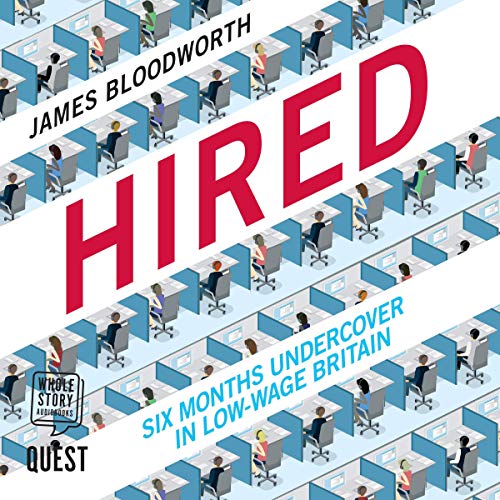Welcome to the third installment of my reading list series! I’m writing on a gorgeous 70 degree March day in Iowa, and I’ve spent most it outside. They won’t all be like this, though. Here’s some recent and upcoming reading for those rainy days, surprise snows, or…coronavirus quarantines.
Page 89 of 119
Recently, I wrote about why Elizabeth Warren lost the race for the Democratic nomination. My thesis? Warren failed to consolidate the progressive vote, and then her pivot to the center didn’t work. And even had she done these things, she’d have quickly run into problems winning among voters of color, especially black voters. Many Warren supporters, by contrast, cite misogyny as the major factor in her loss. They think the U.S.’s culture of misogyny cost Warren the win.
I didn’t mention misogyny in my own post. But not because I forgot about it or think it’s not important. I didn’t, and it is. I think it operated as an important background force rather than as a major cause of her loss. And getting at these things required more space and time than the previous post offered.
So, let that space and time be here and now.
Some Democrats don’t like Bernie Sanders, and they’re not shy about expressing it. They think his negative campaigning cost Hillary Clinton the 2016 election. They think his online supporters – the dreaded ‘Bernie Bros‘ – display misogyny, racism, and authoritarian tendencies. But the most common reason – especially as of late – is that they think he’s not electable. He can’t beat Trump, so the story goes, because he’s too divisive, his policies are ‘pie in the sky’ or ‘far left,’ he has skeletons in his closet, and/or he’s too old.
Whew! I’m setting aside the question of the merits of most of these charges. Some, e.g., the one about costing Clinton the 2016 election, we can dismiss as false and widely debunked. Others are more complicated. I’m also setting aside the question of whether Bernie can still win the nomination. Nor is this a post of evangelism. Instead what I’m doing here is addressing the ‘electable’ question. Is Bernie Sanders electable? And how can we tell?

Elizabeth Warren 2020 began in 2015. A coalition of liberals and progressives lifted her up as the right person to lead an electoral coalition. Why? Her bona fides as a consumer advocate and legislative leader – and her broad appeal across the Democratic Party – suggested her as the champion of a movement to push Obama’s Democratic Party to the left without leaving the Obama coalition behind.
Her 2020 campaign aimed to do just that. But the terrain changed. It was no longer a unity between Obama and the myriad forces of the shattered electoral left. It was a surging electoral left – united by the 2016 Bernie Sanders campaign – and the Biden/Clinton/Obama ‘party establishment.’ Warren promised to combine the progressivism of Sanders with the practicality of a campaign that could mobilize Democratic voters and win over a bit of ‘Middle America.’
Or so the theory went. We know it didn’t work out that way, and I’ll discuss why. Here are two major factors I see contributing to her loss. And one factor some Elizabeth Warren defenders cite that I’ll argue wasn’t really much of a factor.
I recently wrote about how people of color voted in the early states. Maybe you read the recent South Carolina results and thought this upset the trend – the trend of Bernie Sanders winning the votes of people of color? Not quite. The South Carolina results were consistent with earlier states. I think people base that thought on misconceptions about black voters. And so I’m writing now about two of these misconceptions.



